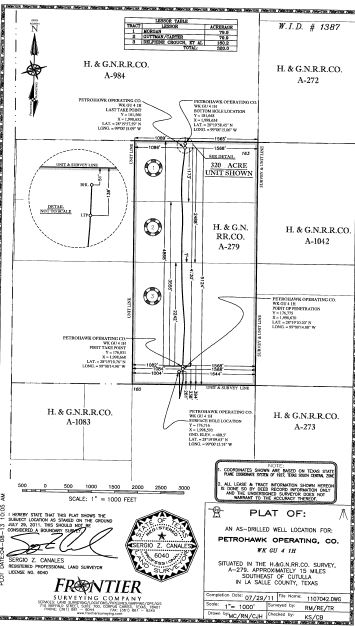Originally published by Broden & Mickelsen LLP.
In an internet age, it’s startlingly easy for someone to use another person’s picture, name, or other identifying information to commit an internet crime. The term “catfishing,” which is sometimes spelled “catphishing” typically involves using someone else’s photo, name, or personal information for the purpose of luring another individual into a romantic or personal relationship.
As a phrase, catfishing was first coined in 2010, when a documentary about the practice was released. The documentary was quickly followed by a popular television show, which helped make people aware of catfishing scams.
In the years that have followed, numerous people have been tricked into communicating with people online, and some have even sent money to people who use a fake photo or fake identity to misrepresent themselves over the internet.
Internet scammers have also used catfishing schemes to trick people into sending money through the internet by making their intended victims believe the scammers are celebrities.
While social media sites like Facebook and Twitter have attempted to crack down on fake profiles by verifying the accounts of famous or noteworthy people, catfishing scams still persist — and people continue to fall for them.
The popularity of social media has made it even easier for people to impersonate others online. As the practice becomes more widespread, it’s important for people to understand that online impersonation is a serious crime.
Online Impersonation Under Texas Law
Catfishing has become such a serious problem that one state has passed a law making it a specific crime. In Oklahoma, lawmakers enacted a statute in 2016 called the Catfishing Liability Act.
Under the law, people who are victims of catfishing scams may obtain an injunction that prohibits others from using their names, photos or voices to create a fake online profile.
While Texas doesn’t have a specific catfishing law, state law makes online impersonation a crime in Texas.
Under the Texas law, someone who impersonates another individual online for the purpose of causing the victim harm, threatening the person, intimidating the person, or defrauding the person, can be found guilty of online impersonation.
Depending on the circumstances of the case, online impersonation in Texas can be charged as a felony, or in some cases, a misdemeanor.
For example, when the person behind the impersonation makes a website, social media profile, or posts messages online with the intent to defraud, intimidate, threaten, or cause harm, the crime could be prosecuted as a third-degree felony.
How to Spot a Catfish Scam
Internet fraud has become such a mainstream part of American culture that most people are already on guard or cautious when it comes to scams. On the other hand, scammers have also evolved and become increasingly creative when it comes to duping people.
This reality means it’s important to know how to identify a potential catfishing scheme, especially if you’re involved in social media or online dating, where catfishing tends to be more popular.
To protect yourself, make sure you know how to spot the catfishing red flags:
- The person is too good to be true – If the person seems perfect for you in every way, they might not be real. Of course, this doesn’t mean that everyone is faking their identity, but be careful about people online who claim to live a glamorous or high-profile lifestyle.
- The person’s profile is vague or brand new – Is the individual’s profile new? Does it seem vague on details? Many people who participate in catfish schemes are forced to create new fake identities when their victims start getting suspicious. Be wary of users who have only been online for a short time.
- The person wants to move fast – If the person wants to jump from acquaintances to a more serious relationship within a relatively short period of time, this can also be a red flag.
- The person refuses to meet face to face – People behind catfish schemes will often come up with endless excuses why they can’t meet in person. They might claim they have an illness, or that a family member is ill. If they keep making excuses for why it’s impractical or impossible for them to meet you, this could be a sign that they’re concealing their true identity.
It’s also important to be wary of anyone who asks you to send them money, regardless of how long you’ve known them online. It’s particularly important to be hesitant about sending money if you have never met the person face to face, or if they’re vague about their identity.
If you only know the person from your internet interactions, be careful about agreeing to send them any kind of monetary funds, as this often is a sign of a catfishing scheme.
Defending Against an Online Impersonation Charge in Texas
If you’ve been charged with online impersonation, it’s important to speak to an experienced Dallas computer crimes defense lawyer about your case. An online impersonation conviction can damage your reputation and hurt your career prospects. A criminal defense lawyer in Dallas at the Law Office of Broden & Mickelsen can help you determine the best course of action in your case.
Dallas Best Computer Crimes Defense Lawyers
Broden & Mickelsen
(T): 214-720-9552
www.brodenmickelsen.com
***ATTORNEY ADVERTISING***
Prior results cannot and do not guarantee or predict a similar outcome with respect to any future case.
Sources:
- https://www.washingtonpost.com/news/arts-and-entertainment/wp/2016/01/09/what-is-catfishing-a-brief-and-sordid-history/?noredirect=on&utm_term=.d5f3d11d1b2a
The post Dallas Computer Crimes Lawyer Explains Consequences of Catfishing appeared first on Dallas Criminal Defense Attorneys |State & Federal Lawyers.
Curated by Texas Bar Today. Follow us on Twitter @texasbartoday.
from Texas Bar Today http://bit.ly/2GI2xLS
via
Abogado Aly Website

 Last Wednesday, the US Supreme Court issued yet another pro-employer arbitration decision.
Last Wednesday, the US Supreme Court issued yet another pro-employer arbitration decision.
 Confess … Confess!
Confess … Confess!
 To highlight some of the posts that stand out from the crowd, the editors of Texas Bar Today have created a list from the week’s blog posts of the top ten based on subject matter, writing style, headline, and imagery. We hope you enjoy this installment.
To highlight some of the posts that stand out from the crowd, the editors of Texas Bar Today have created a list from the week’s blog posts of the top ten based on subject matter, writing style, headline, and imagery. We hope you enjoy this installment.
 Years ago I read
Years ago I read 
 The Dallas Volunteer Attorney Program, an initiative of the Dallas Bar Association and Legal Aid of NorthWest Texas, is hosting 11 free legal clinics for county residents who meet financial guidelines. The clinics, which will be held throughout May, will offer legal advice and consultation in civil matters.
The Dallas Volunteer Attorney Program, an initiative of the Dallas Bar Association and Legal Aid of NorthWest Texas, is hosting 11 free legal clinics for county residents who meet financial guidelines. The clinics, which will be held throughout May, will offer legal advice and consultation in civil matters. Nifty Counsel, Dunce’s Caps in-house lawyer, came up with what he thought was a brilliant way to minimize the company’s liability to its customers. Nifty added arbitration provisions to Dunce’s customer purchase order agreements, and included language that the customer agreed the arbitrator could not award the customer damages exceeding the price of the order. Flat Backs, a major retail hat company, filed an arbitration action against Dunce’s after Dunce’s failed to deliver 100,000 Auburn Tigers 2019 NCAA Men’s Basketball Champions hats.
Nifty Counsel, Dunce’s Caps in-house lawyer, came up with what he thought was a brilliant way to minimize the company’s liability to its customers. Nifty added arbitration provisions to Dunce’s customer purchase order agreements, and included language that the customer agreed the arbitrator could not award the customer damages exceeding the price of the order. Flat Backs, a major retail hat company, filed an arbitration action against Dunce’s after Dunce’s failed to deliver 100,000 Auburn Tigers 2019 NCAA Men’s Basketball Champions hats.

 If you read the title, you likely thought about it for a millisecond and formulated an answer or opinion. Whether you realize it or not, you became an active participant in my attempt to communicate.
If you read the title, you likely thought about it for a millisecond and formulated an answer or opinion. Whether you realize it or not, you became an active participant in my attempt to communicate.